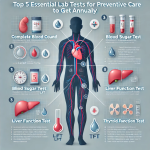
June 12, 2024 – New research highlights the crucial role of early olfactory experiences in shaping the development of newborn brains, particularly linking the sense of smell to touch development. These findings provide new insights into how sensory experiences influence brain maturation and could have significant implications for early childhood development and care practices.
The Crucial Role of Olfaction in Early Development
The sense of smell, or olfaction, is one of the first senses to develop in newborns. Recent studies suggest that olfactory experiences play a pivotal role in brain development, influencing not just the sense of smell but also other sensory modalities such as touch.
See Here:
Early Olfactory Experiences
From birth, infants are exposed to a variety of smells that can have a profound impact on their developing brains. These early olfactory experiences help infants recognize their caregivers, form bonds, and navigate their environment. The study underscores that these experiences are more than just sensory; they are integral to cognitive and emotional development.
Brain Plasticity and Sensory Integration
The research indicates that the newborn brain exhibits high plasticity, meaning it can be significantly shaped by sensory experiences. This plasticity allows for the integration of different sensory inputs, suggesting that olfactory experiences can enhance the development of other senses, particularly touch.
Linking Olfaction to Touch Development
The connection between olfaction and touch is a fascinating aspect of sensory development. The study explores how these two senses are interconnected and how early olfactory experiences can influence tactile perception and motor development.
Neural Pathways and Sensory Processing
Neuroscientists have identified specific neural pathways that link the olfactory and tactile systems. These pathways facilitate the integration of smell and touch, allowing for a coordinated sensory experience. Early exposure to smells can stimulate these pathways, enhancing tactile processing and sensitivity.
Implications for Motor Development
The study also highlights the impact of olfactory experiences on motor development. Infants exposed to a variety of smells tend to show more advanced motor skills, such as grasping and reaching. This suggests that olfactory stimulation can support the development of fine motor skills by enhancing the brain’s ability to process tactile information.
Practical Implications for Early Childhood Care
The findings of this study have practical implications for early childhood care, suggesting that caregivers and parents can play a proactive role in supporting sensory development through olfactory stimulation.
Creating a Stimulating Environment
Caregivers can create a rich sensory environment for infants by introducing a variety of pleasant and safe smells. This can include natural scents from flowers, foods, and the environment, which can help stimulate the olfactory system and support overall brain development.
Integrating Sensory Activities
Incorporating sensory activities that combine smell and touch can further enhance development. For example, activities such as playing with scented playdough or using aromatic lotions during massages can provide simultaneous olfactory and tactile stimulation, promoting sensory integration.
Future Research Directions
The study opens up new avenues for research into sensory development and brain plasticity, highlighting the need for further exploration into how early sensory experiences shape brain function and behavior.
Long-Term Effects of Early Olfactory Stimulation
Future research could investigate the long-term effects of early olfactory stimulation on cognitive and sensory development. Understanding these effects could inform early intervention strategies for children with sensory processing disorders.
Cross-Modal Sensory Development
Further studies could also explore the broader implications of cross-modal sensory development, examining how other senses, such as hearing and vision, interact with olfaction and touch to shape the developing brain.
Conclusion
The research on the link between early olfactory experiences and touch development underscores the importance of a multi-sensory approach to early childhood care. By recognizing the interconnectedness of the senses and their impact on brain development, caregivers can better support the growth and well-being of infants. This study highlights the profound influence of smell on the developing brain, paving the way for new strategies in early childhood development and care.







